
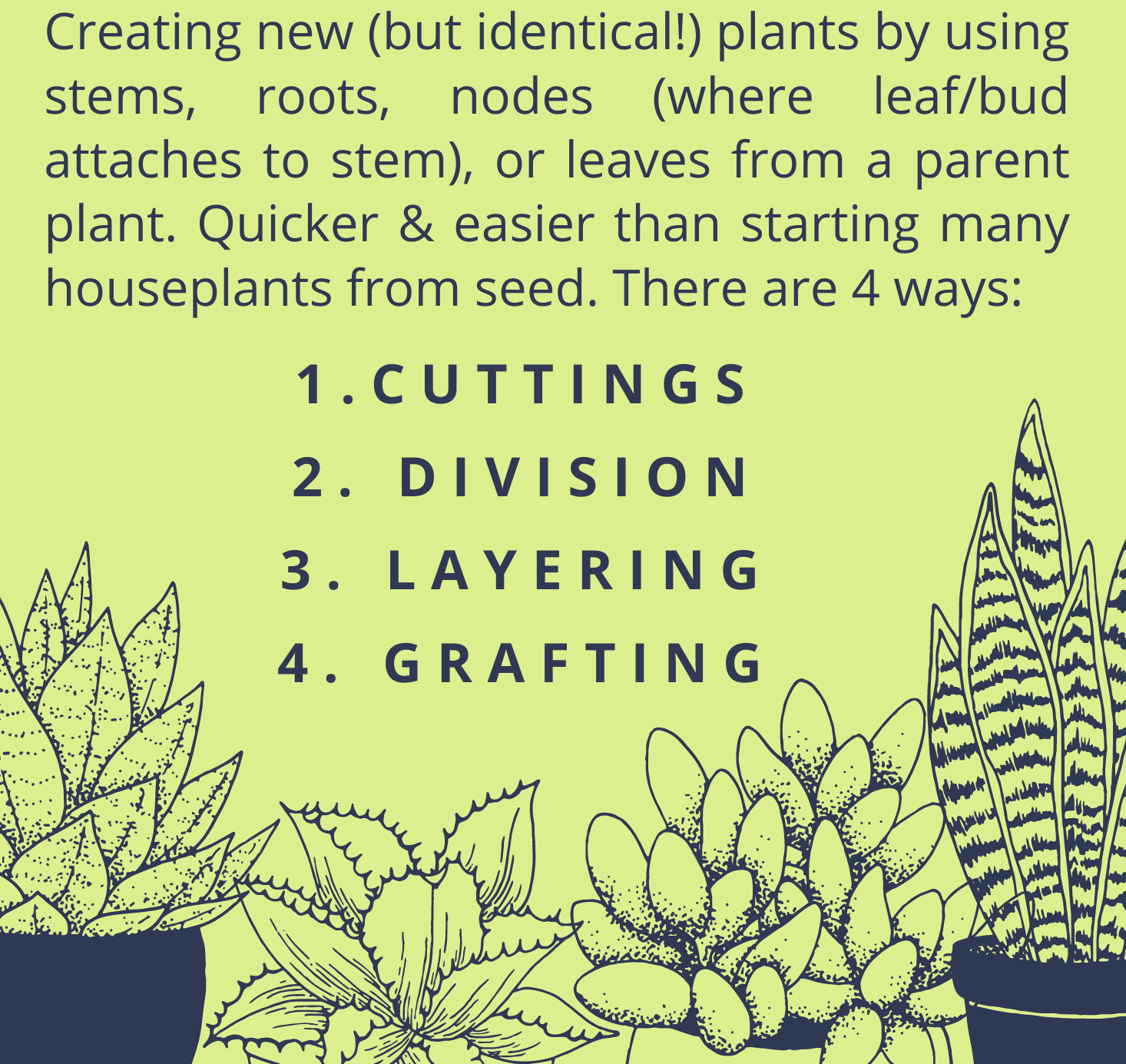
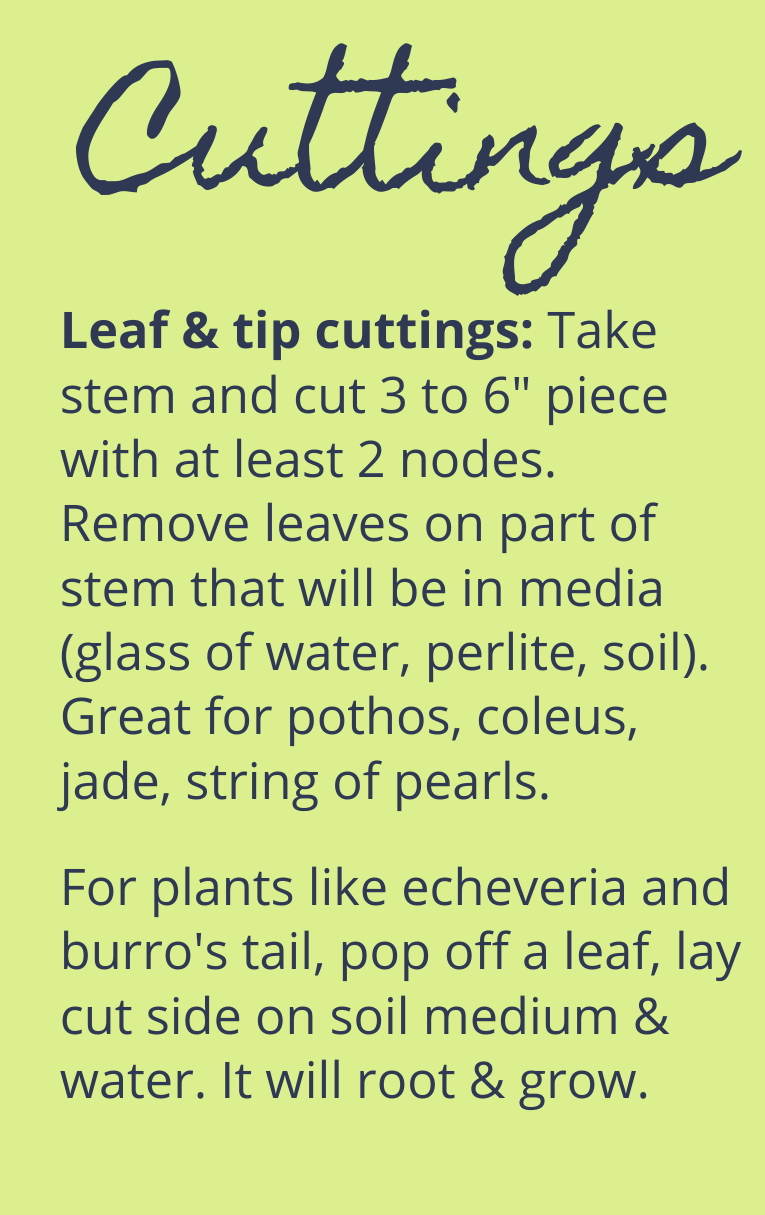
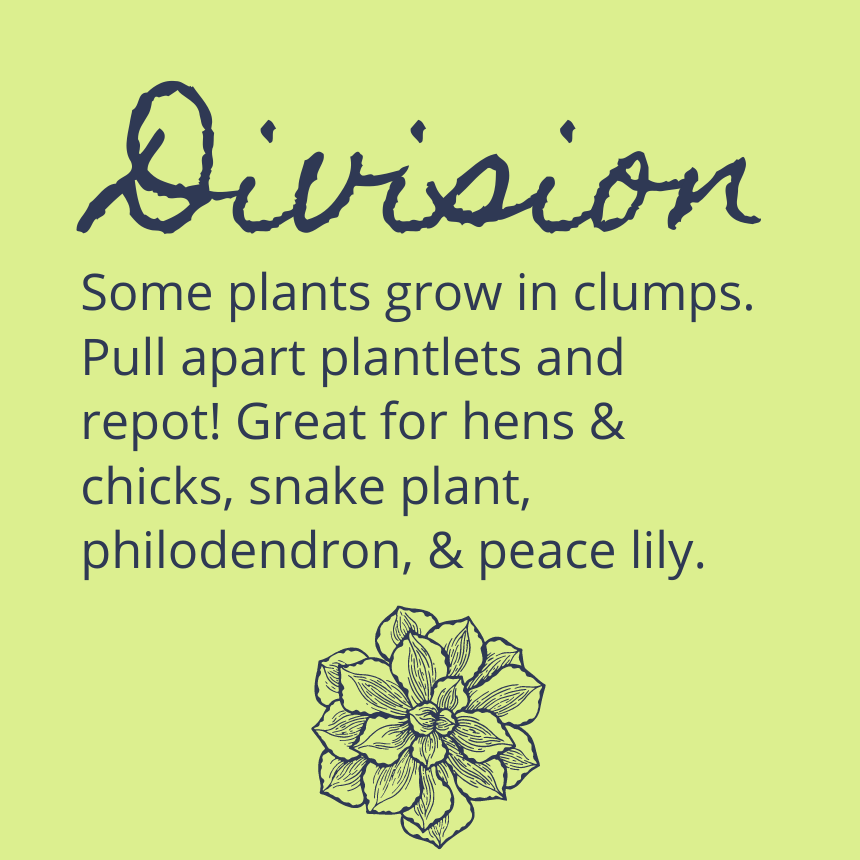
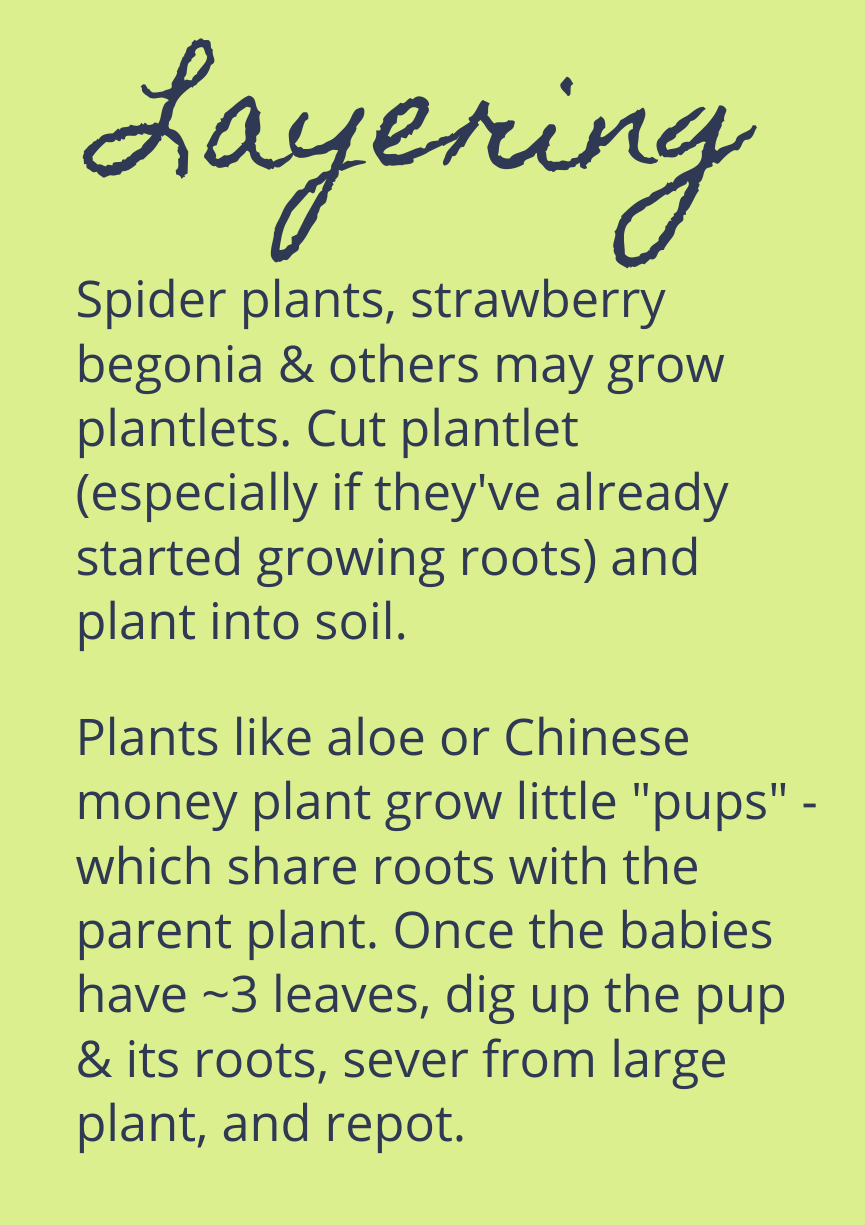
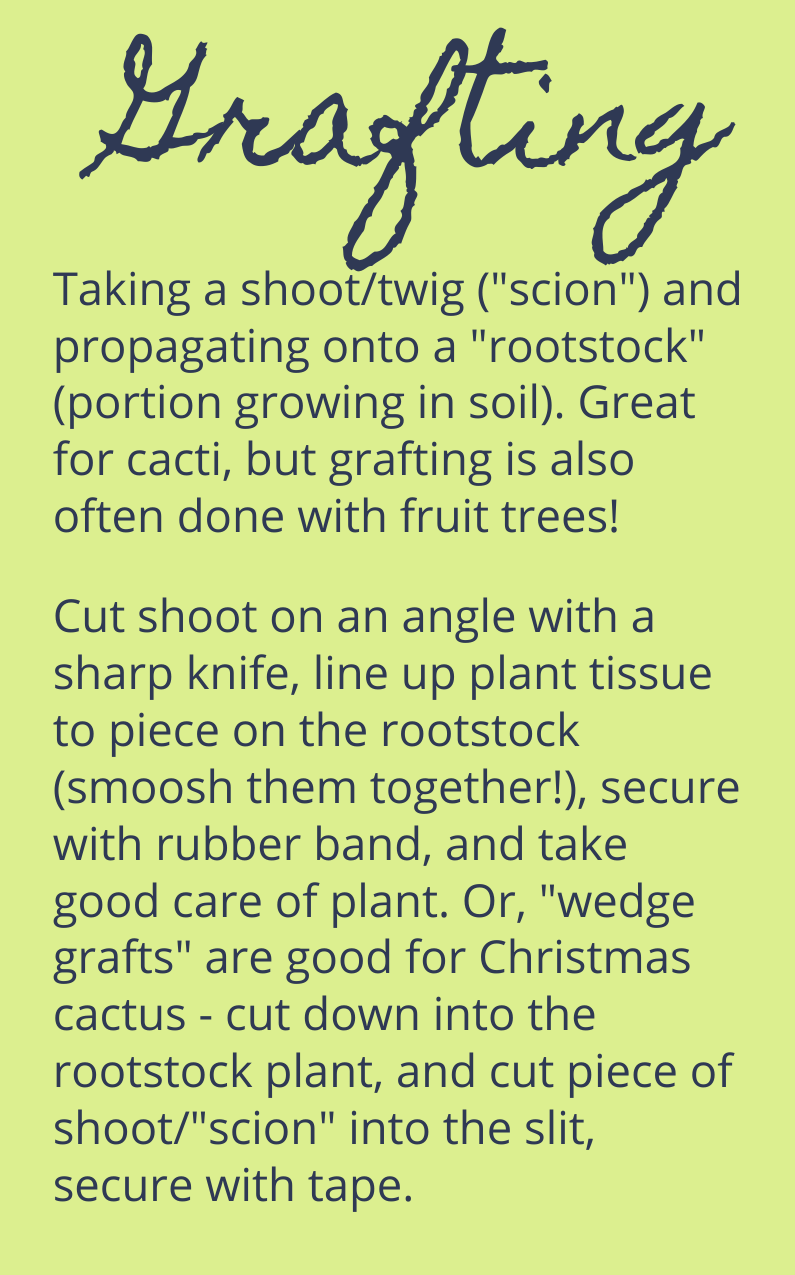
Did you know: The same methods used to propagate houseplants are used for other favorite plants. Tomatoes and basil can be propagated through “cuttings”, fruit tree branches can be “grafted”, rhubarb & asparagus clumps can be “divided”, etc. You can grow new plants from fragments of a parent plant (asexual/vegetative propagation on plants like garlic, artichoke, potato, ginger, dahlia, sweet potato and more.
*Sometimes we forget about everyone in our households: make sure to check if your new plants are safe for furry friends. Lots are safe for cats and dogs (African violet, butterfly palm, Chinese money plant, prayer plant, polka dot plant, orchid, etc.). Some cause mild irritation (usually when ingested): Pothos, devil’s ivy, dumb cane, peace lily, philodendron, & calla lily aren’t considered life threatening, but can cause irritation in the mouth and GI tract (more severe for pets with GI or breathing issues to begin with). Most notably, sago palm (can result in liver failure in cats & dogs) and Easter lily (very toxic to cats, even with exposure to pollen; only mildly unsafe for dogs however) are highly toxic.
This Plant Swap & Propagation Station event is part of the “The More you Grow” 2022 workshop series presented by Easton Garden Works.

